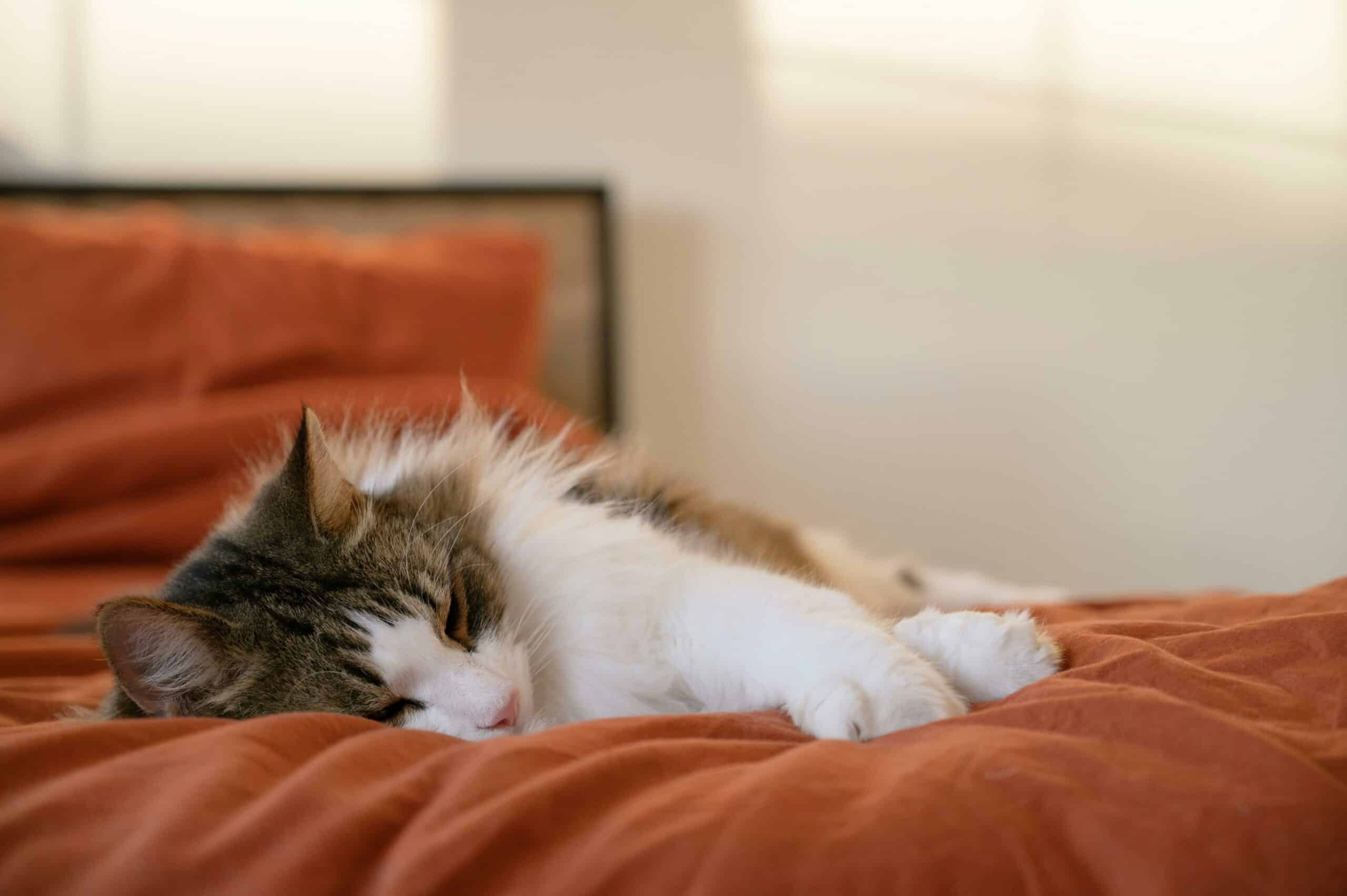
Cats are famously known for their love of napping. Whether they’re sprawled on a windowsill or curled up in a cozy corner, felines can spend up to 16 hours a day sleeping. But why do cats sleep so much? In this article, we’ll dive into the fascinating reasons behind their extended snoozes, uncovering the secrets of their biology, behavior, and evolutionary history.
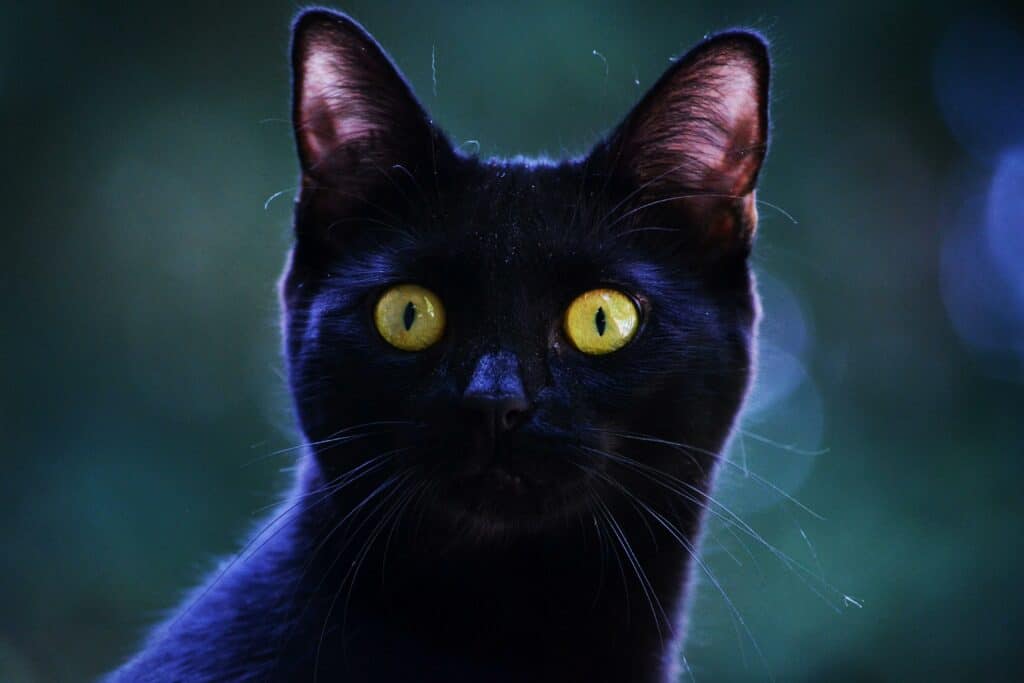
The Evolutionary Roots of Cat Sleep Patterns
Cats are natural predators, and their sleep patterns reflect their hunting instincts. In the wild, cats must conserve energy for bursts of activity like stalking and catching prey. These bursts require significant exertion, so they compensate with long periods of rest. This behavior has been passed down to domestic cats, even though they no longer need to hunt for survival.
Crepuscular Activity: A Key to Understanding Sleep
Unlike humans, cats are crepuscular, meaning they are most active during dawn and dusk. This is when their natural prey, such as rodents, is most active. Their sleeping habits are tailored to this schedule, with naps scattered throughout the day and night.
The Science Behind Cat Sleep
Cats’ sleep cycles differ from those of humans. While we experience long stretches of deep sleep, cats alternate between light sleep and short phases of deep sleep (often called REM sleep).
- Light Sleep: About 75% of a cat’s sleep is light, during which their senses remain alert. This state allows them to quickly wake if a threat or opportunity arises.
- REM Sleep: The remaining 25% is deep sleep, during which cats may twitch their whiskers or paws—an indication that they might be dreaming.
Do Cats Dream?
Yes! Research suggests that cats, like humans, experience dreams during REM sleep. These dreams may replay memories, such as chasing a toy or exploring their surroundings.
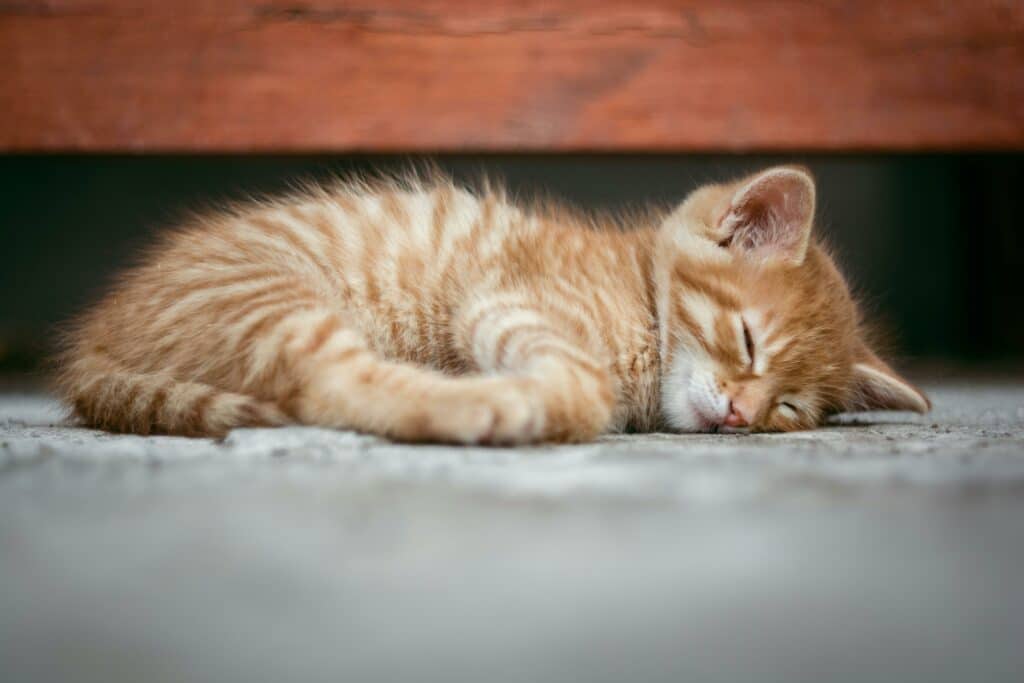
How Cat Age Affects Sleep
A cat’s age significantly impacts its sleep patterns.
- Kittens:
Young cats can sleep up to 20 hours a day. This rest is crucial for their growth and development. - Adults:
Mature cats generally sleep 12–16 hours daily, depending on their activity level and environment. - Seniors:
Older cats may sleep more due to reduced energy levels and possible health issues, like arthritis or obesity.
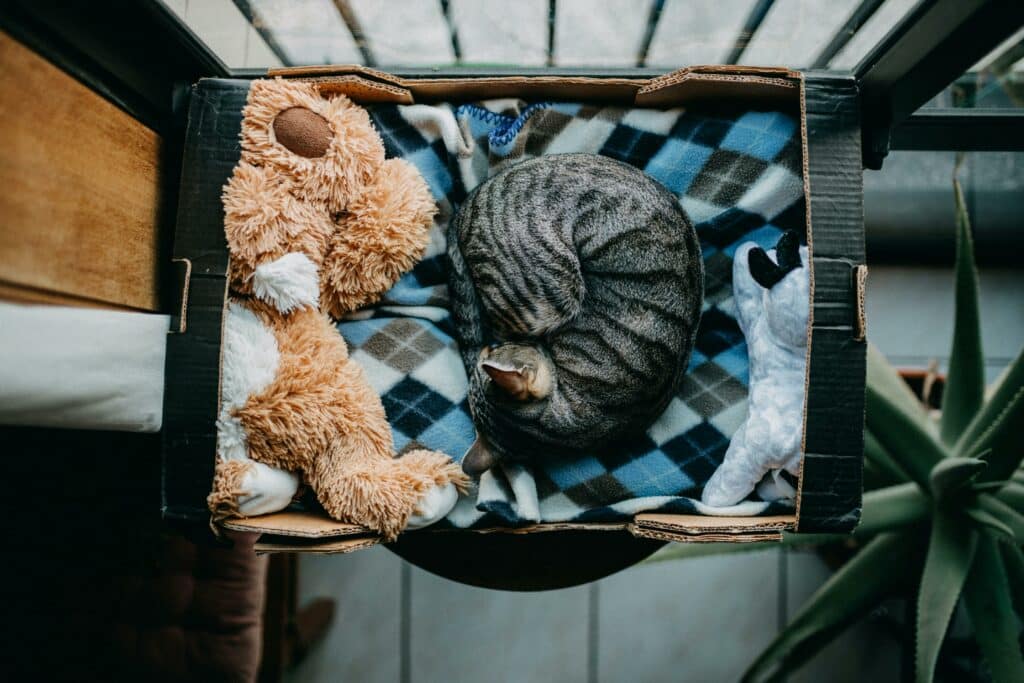
Factors Influencing a Cat’s Sleep Habits
Diet and Energy Levels
Cats fed high-quality, nutrient-dense food tend to have more balanced energy levels, which can influence their sleep. However, excessive treats or an imbalanced diet may lead to lethargy.
Environment
Cats seek out safe, comfortable places to nap. Whether it’s a sunny spot or a cozy bed, their environment plays a critical role in determining how and where they sleep.
Health and Stress
Health conditions like hyperthyroidism or stress from environmental changes can disrupt a cat’s sleep. If your cat is sleeping significantly more or less than usual, consult a veterinarian.
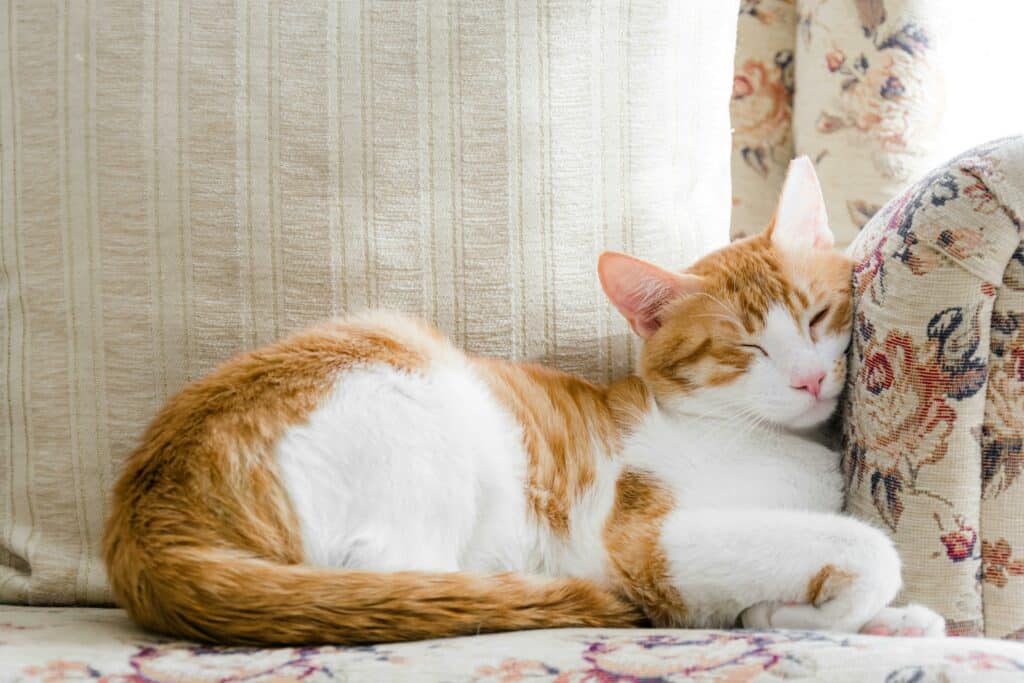
Myths About Cat Sleep
“Cats Are Lazy”
It’s easy to assume that a cat lounging all day is lazy, but this behavior is instinctive and necessary for their well-being. Sleep helps them recharge both physically and mentally.
“Cats Sleep for No Reason”
Every nap serves a purpose. Sleep allows cats to regulate their body temperature, process emotions, and even strengthen their immune systems.
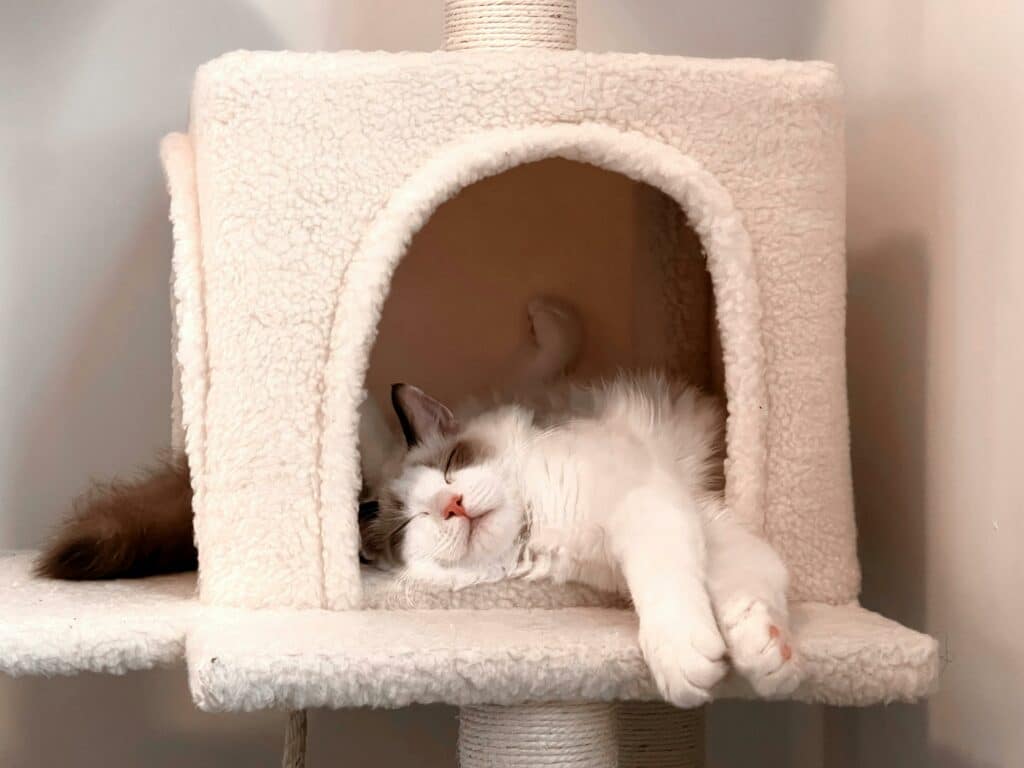
How to Support Healthy Sleep for Your Cat
To ensure your cat gets quality rest:
- Create a Comfortable Space: Provide a quiet, cozy area where your cat feels safe.
- Engage in Playtime: Stimulate your cat with interactive toys, especially during their active periods, to balance energy and rest.
- Feed a Proper Diet: A balanced diet supports overall health and energy regulation.
- Monitor for Changes: Keep an eye on shifts in sleep patterns, which could indicate underlying health issues.
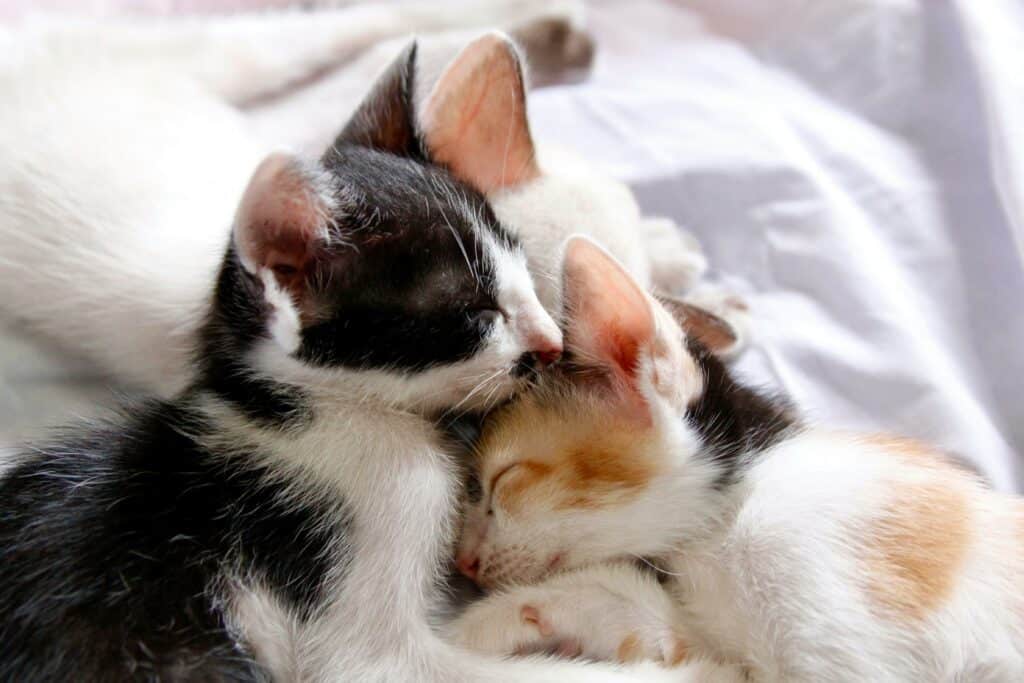
Conclusion
Cats are extraordinary sleepers, and their unique habits stem from a blend of evolutionary instincts, biological needs, and environmental factors. By understanding why they sleep so much, we can better appreciate their behavior and provide the support they need to thrive.
References:
- How Many Hours Do Cats Sleep? – Sleep Foundation
- Why Do Cats Sleep So Much? – PetMD
- Are Cats Truly Nocturnal? – Bulverde Animal Hospital
- Why do cats sleep so much? – The People’s Dispensary for Sick Animals.
- Older Cats with Behavior Problems – American Society for the Prevention of Cruelty to Animals
Share this:
- Click to share on WhatsApp (Opens in new window) WhatsApp
- Click to share on Facebook (Opens in new window) Facebook
- Click to share on LinkedIn (Opens in new window) LinkedIn
- Click to share on Pinterest (Opens in new window) Pinterest
- Click to share on Tumblr (Opens in new window) Tumblr
- Click to share on X (Opens in new window) X
- Click to share on Reddit (Opens in new window) Reddit
- Click to share on Telegram (Opens in new window) Telegram
- Click to email a link to a friend (Opens in new window) Email
- Click to print (Opens in new window) Print































